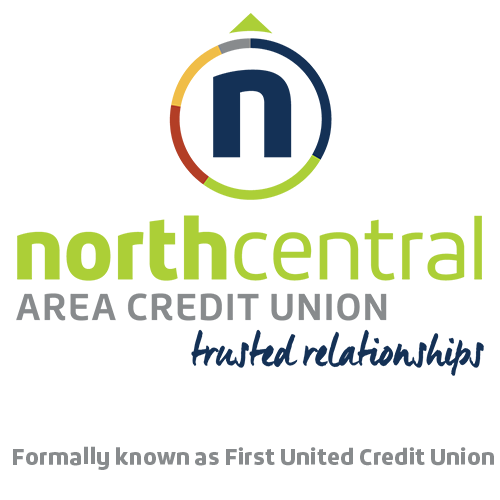
Bookmark ncacu.org as this will be our website moving forward. This temporary webpage is to help the transition for a short period of time. You can find information below that is significant to the Grandville branch, any other information can be found on the North Central Area Credit Union website.
Data Merger Information for Grandville Members
How to access your account starting January 21, 2024.
Online Banking Login: Starting January 21, 2024, when logging into North Central’s Online Banking the first time you will simply visit ncacu.org and select “first time user” by It’sMe247. Log in using your new account number (see below) to set up online banking.
Log into online banking on www.NCACU.org prior to logging into the mobile app:
- Select “Log in”.
- Select “First time user”.
- Input new account number (see below) and SS number of the primary member on the account.
- Continue to set up your new online banking, nothing will carry over from your old online banking.
- Download NCACU mobile app and remove the old NCACU “a division of North Central Area CU” mobile app from your device.
Until January 19, 2024, you may log into online banking from this landing page. All access to accounts will be unavailable January 20, 2024. Going forward, please access Online Banking directly via the North Central website. All processes within Online Banking will remain the same; there will be no changes to your account structure at this time.
Mobile App: Starting January 21, 2024, members will want to set up online banking prior to using the mobile app. Download the NCACU Mobile App and remove the NCACU “a division of North Central Area CU” mobile app from your device. All access to accounts will be unavailable January 20, 2024.
Until January 19, 2024, you’ll be prompted to update your app, reflecting the change to NCACU, a division of North Central Area Credit Union. An update is only required if you’re already using our Mobile App. Once you’ve updated your app, you will see no other changes except for our new branding. If you have not yet downloaded our app, download today to keep banking convenient for you!
Account Number: Following the conversion, your member number will convert to nine digits beginning with the number 7. Simply add a “7” and enough zeros to create this nine-digit number. Then, proceed to create a new user name within Online Banking.
Disclosures and Fees: You may find all disclosures and fee schedules at ncacu.org.
©2023 North Central Area Credit Union
Phone: (616) 532-9067
Fax: (616 ) 532-9196
Routing # 272480775
If you are using a screen reader or other auxiliary aid and are having problems using this website, please call (866) 255-1004 for assistance. All products and services available on this website are available at all North Central Area Credit Union full-service locations.
North Central Area Credit Union or NCACU
3140 Ivanrest Ave SW
Grandville, MI 49418